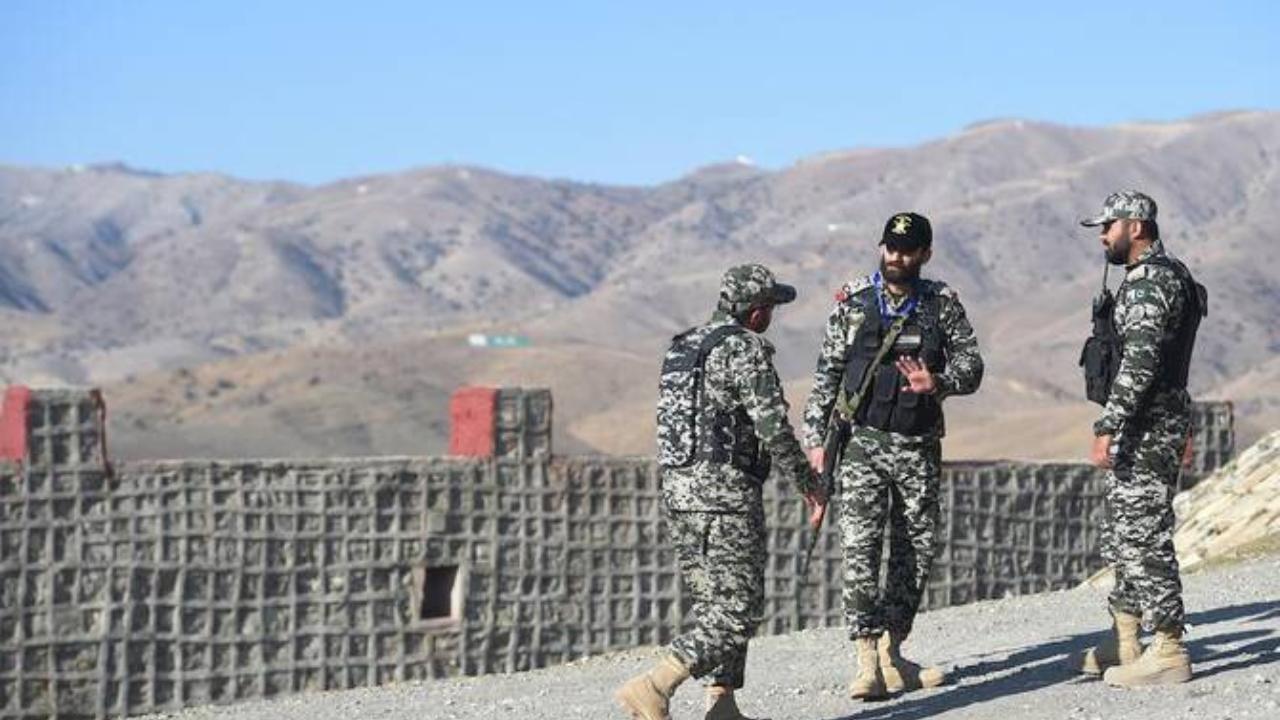You have not yet added any article to your bookmarks!

Join 10k+ people to get notified about new posts, news and tips.
Do not worry we don't spam!

Post by : Meena Ariff
Photo:AFP
The death of 31 militants in Pakistan during the latest military operations has highlighted, once again, the country’s long and uneasy struggle with violent extremism. While security officials have hailed the action as a significant blow against organized insurgent groups, the episode also underscores the broader challenge: Pakistan is still caught in a cycle of militancy, counterattacks, and fragile stability. Understanding this development requires a closer look at why militancy persists, how the state is combating it, and what it means for the nation’s security and political future.
Rising Wave of Militancy
Pakistan has fought various militant groups for nearly two decades, particularly after the U.S.-led war in Afghanistan in 2001 pushed fighters across the border. These groups, ranging from the Tehreek-e-Taliban Pakistan (TTP) to other smaller outfits, have repeatedly targeted military installations, police stations, schools, and civilians.
In recent years, the threat has escalated once again. Armed attacks on army posts, checkpoints, and law enforcement agencies have surged. The militants have exploited mountainous terrain, border regions, and tribal districts as staging grounds for ambushes and cross-border infiltration. Intelligence reports over the past months have repeatedly warned that several factions were regrouping, expanding influence, and planning high-profile strikes.
It is in this backdrop that the latest military operation was launched. Security sources said the crackdown was based on intelligence-gathering that identified militant movement across volatile areas. The killing of 31 fighters suggests that the militants were concentrated in significant numbers, signaling coordinated activity rather than isolated attacks.
The Army’s Expanding Presence
The operation is part of a broader campaign where the Pakistan Army has increased its visibility in conflict-hit zones. Beyond combat operations, troops are patrolling highways, securing villages, and sealing off known insurgent corridors.
Officials insist that the aim is not just retaliation but deterrence. By striking at the militants’ camps and hideouts, the army hopes to prevent the formation of larger militant networks that have historically destabilized entire regions. Recovered weapons, explosives, and communication devices from these raids demonstrate that militant groups remain well-armed and resourceful.
Yet, an increased military presence also comes with criticism. Human rights organizations caution that rapid militarization in civilian areas risks displacing communities and can fuel resentment if not paired with governance, development, and justice. Pakistan has a history of military operations that achieved tactical successes, only to see militants return in stronger waves.
The Domestic Impact
For ordinary Pakistanis, especially in tribal and border districts, the persistence of militancy means living under constant fear. markets, schools, and mosques have all experienced deadly attacks in recent years. Economic growth is slowed in these regions as investors hesitate to put money into volatile zones. Locals often face a double burden—caught between militant coercion and the stringent checks imposed during military crackdowns.
This repeated cycle raises an important question: Can militancy be defeated by military means alone? Experts widely argue that force must be coupled with sustained political, economic, and social reforms. While raids may eliminate fighters, the ideology driving extremism thrives in poverty, lack of education, and feelings of marginalization.
Regional and International Dimension
Militancy in Pakistan is not only a domestic issue but also a regional security challenge. Many of the groups operating inside Pakistan are linked with networks across Afghanistan. The porous border allows fighters to move back and forth, complicating counterterrorism efforts.
Relations with Kabul remain tense, with Pakistan accusing Afghan authorities of not doing enough to stop militants from infiltrating, while Afghan officials often dismiss these allegations. Meanwhile, the international community closely monitors Pakistan’s handling of militant threats, as instability in South Asia directly affects global trade routes, refugee flows, and counterterrorism partnerships.
Foreign governments, particularly China and the United States, have strategic stakes in Pakistan’s stability. China, due to massive investment under the China-Pakistan Economic Corridor (CPEC), views rising militancy as a threat to economic projects. The U.S. continues to watch Pakistan’s approach, given its long history of involvement in the war on terror.
The Road Ahead
The army’s killing of 31 militants is a victory, but it is unlikely to be the final word. For every figure eliminated, new recruits often emerge. Militancy in Pakistan is deeply linked to socio-political grievances, cross-border influence, and the fragile governance of tribal belts.
A comprehensive strategy must combine military strength with political reconciliation, intelligence coordination, stronger policing, and community development. Removing militants physically does not address the root causes that allow these groups to recruit and resurface. Better schools, healthcare, vocational training, and justice systems are essential in cutting off the cycle of extremism.
The government has a role not only in funding counterterrorism but also in fostering national unity against militant agendas. Public messaging, grassroots leadership, and rehabilitation programs for surrendered militants could help weaken the appeal of extremist narratives.










Dalal Street Spotlight: Top 10 Stocks Investors Are Watching as Markets Open on a High
Indian stock markets begin the week with strong momentum, and several blue-chip and mid-cap stocks a

Market Movers Today: Key Stocks Set To Watch In Indian Markets
Indian equity markets are poised for active trading as several major companies, including Bharti Air

Milan Welcomes the World: Inside the Grand Opening Ceremony of the 2026 Winter Olympics
The 2026 Winter Olympics opening ceremony in Milan marked a defining moment for global sport, blendi

Unfolding Market Drama: Sensex & Nifty Trade Volatility Amid Budget Fallout and India-US Trade Breakthrough
Indian equity markets exhibited high volatility this week as the 2026 Union Budget triggered sharp s

Dhurandhar 2 Teaser Countdown Ignites Fan Frenzy: All You Need to Know
The highly anticipated sequel to the blockbuster Dhurandhar is building intense excitement as the Dh

Vietnam Overtakes Thailand as Top Choice for Chinese Tourists
Vietnam has quietly surpassed Thailand as the favorite destination for Chinese tourists in 2025.